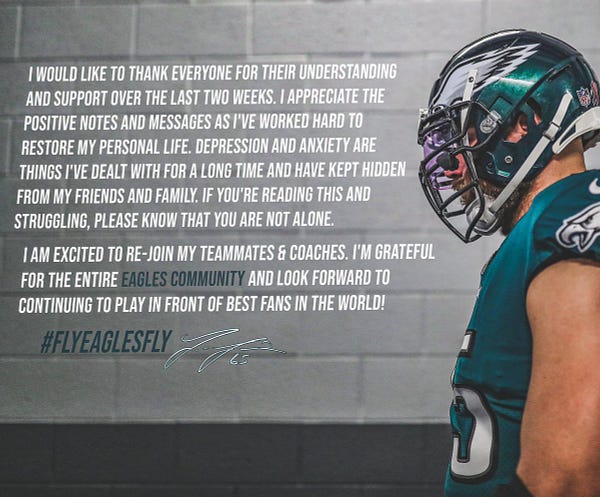Amos Lee, two types of mountain, an astronaut, Michigan, and people quitting
All walk into a bar. No. Into a newsletter though.
Oh hi.
Thanks for reading the newsletter. I mean, thanks for reading at all, it’s good for you, but especially the newsletter. It’s the best for you. Better than any book.
Please remember that our show exists because of listener donations. If you’ve donated, THANK YOU. If not, it’s easy: go here, pick a level that works for you, then select DEPRESH MODE from the list of shows.
Famously, Amos Lee
This week’s episode is a chat with singer-songwriter Amos Lee about his music, his decision to open up more about his long-standing mental health issues, and how he’s holding up in a pandemic that, among other things, killed his mentor and friend John Prine. It’s the first interview he’s done about his new album, Dreamland. But it’s not a dream. The album really happened.
Here’s a song from that album that will get stuck in your head for one thousand years.
He’s got a Ween poster back there.
So many years ago now, probably 2005 when Amos’s first album came out, my wife happened to pick it up at Starbucks. Just an impulse buy. And I think the fact that it was bought at Starbucks kind of painted the music for me a little bit. Not sure why. I think I associated anything from Starbucks with being adult contemporary, pleasant, and comfortable. We lived in Seattle at the time and there was a radio station called The Mountain that played “adult album alternative” music. Sheryl Crow type stuff. Stuff that your slightly wealthier friends listened to after going to the farmer’s market and buying a lot of vegetables. I associate music from Starbucks with music on that station. The Mountain played a lot of Neil Young’s Harvest Moon album but never Harvest.
But I never really dived into Amos’s lyrics or the troubles they hinted at. Listen to your music carefully, I say.
This:
Not this:
Here’s 8 hours of an astronaut floating in some kind of liquid accompanied by space sounds or something
Maybe you’ll find it relaxing.
I don’t know.
Athlete takes care of himself
Lane Johnson of the Philadelphia Eagles is returning to football after missing a couple weeks to tend to his mental health.
"I would like to thank everyone for their understanding and support over the last two weeks," he wrote on social media. "I appreciate the positive notes and messages as I've worked hard to restore my personal life. Depression and anxiety are things I've dealt with for a long time and have kept hidden from my friends and family. If you're reading this and struggling, please know that you are not alone.
A few observations:
Hooray for Mr. Johnson being candid about the reason for his absence. That kind of candor about mental health would have been unthinkable even a few years ago. it’s a great example.
There is something kind of odd about the situation given the NFL’s history of causing the kind of traumatic head injuries that contribute to absolutely terrible mental health. Out of the frying pan and into the fire and into another frying pan that’s filled with fire.
I had to look around a while to find this story. Similar situations with Simone Biles and Naomi Osaka were covered endlessly everywhere. Is that disparity because Johnson is in a team sport in an unglamorous position (offensive line) or because he’s a white guy and the other two are women of color? I don’t know the answer.
Michigan agrees: mental health is health
Thirteen mental health and addiction treatment facilities in the state of Michigan will now receive the same Medicaid funding that physical health clinics get. The effort to do this has been headed up by U.S. Senator Debbie Stabenow of Michigan.
“We haven’t been funding mental health and addiction treatment as health care for too long,” Stabenow said. “We’ve said, ‘Health care above the neck is treated differently than health care below the neck'.”
It’s one of those developments that is both surprising and completely sensible. I think that means it’s good policy.
Everyone’s quitting their jobs and employers still don’t get it
August saw the biggest month of resignations in history. A new study by Mind Share Partners says people are reporting mental health issues but those are not the problem, they’re the symptom of a much larger problem.
We know already that mental health challenges are increasingly the norm. Seventy-six percent of our study respondents reported at least one symptom of a mental health condition in the past year, and over a third (36%) said their symptoms cumulatively lasted 5 to 12 months. But a decline in mental health doesn't necessarily mean that an employee will quit. In fact, study respondents who felt supported by their employer with their mental health were 2.7 times more likely to be satisfied with their job and 2.5 times more likely to intend to stay at their company for two years or longer, compared to those who didn’t feel supported.
Also, if there’s a website with a worse ad experience than Forbes, please never show it to me. I cannot take it.




